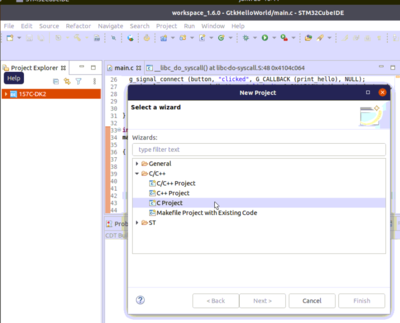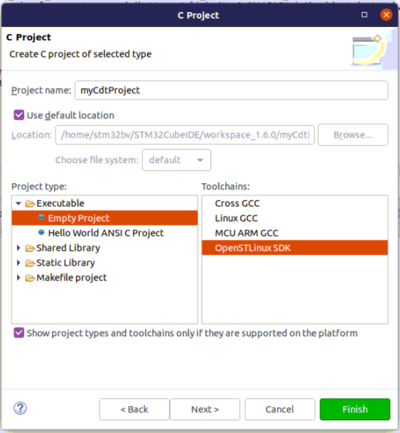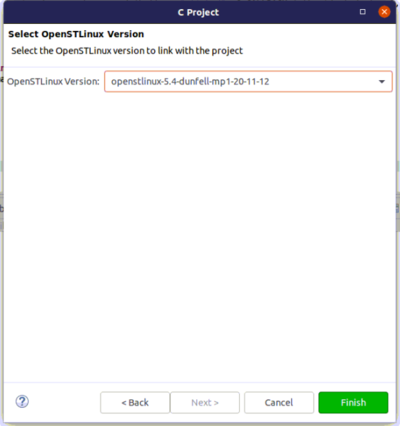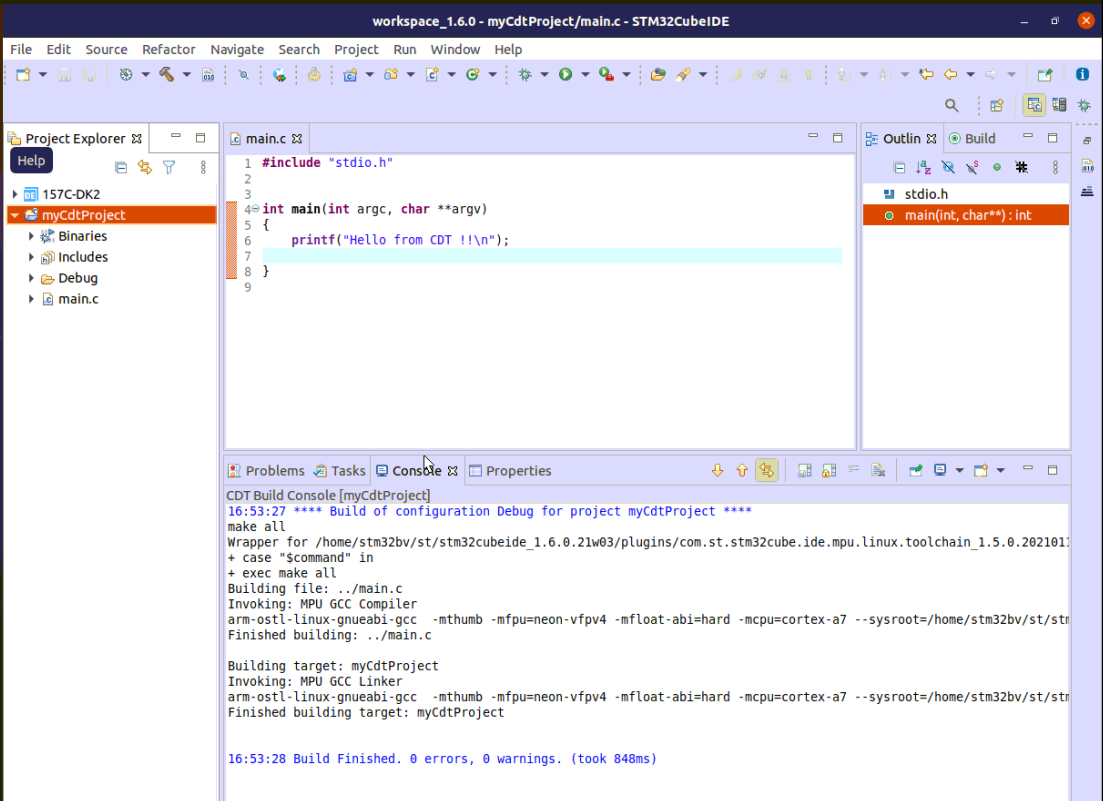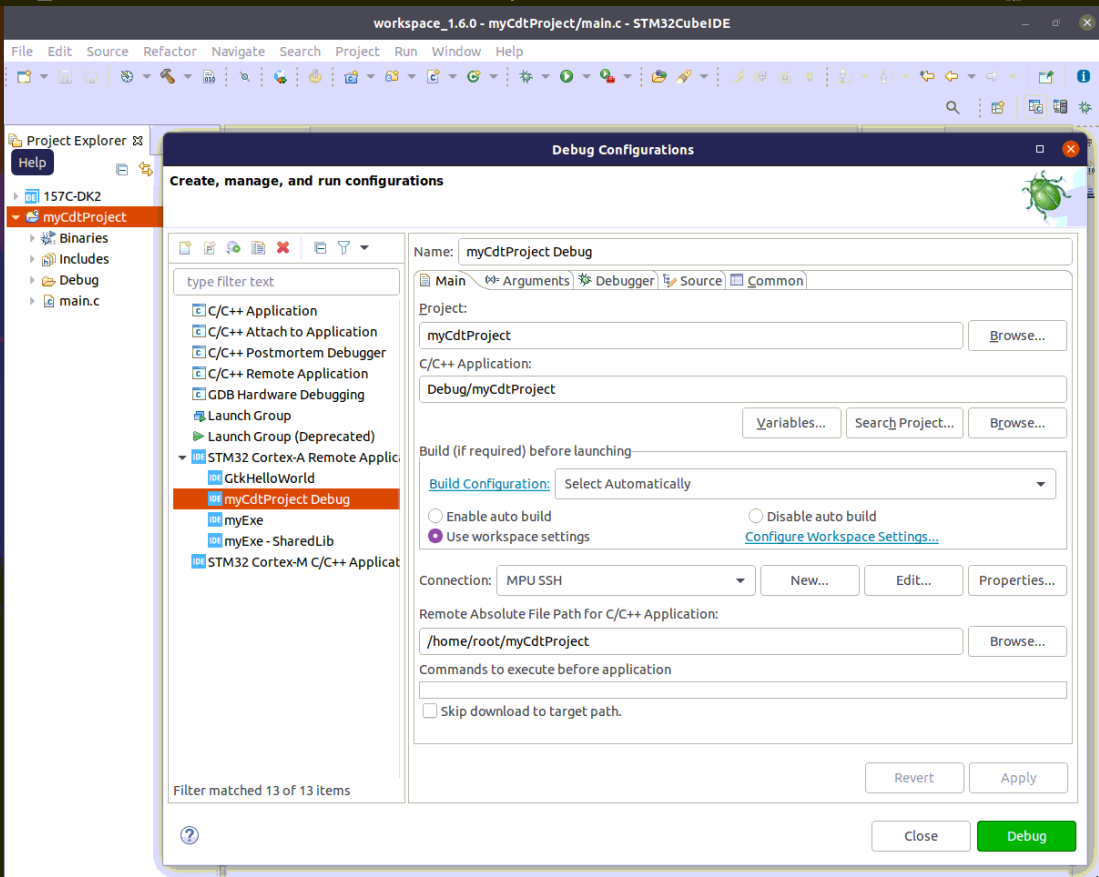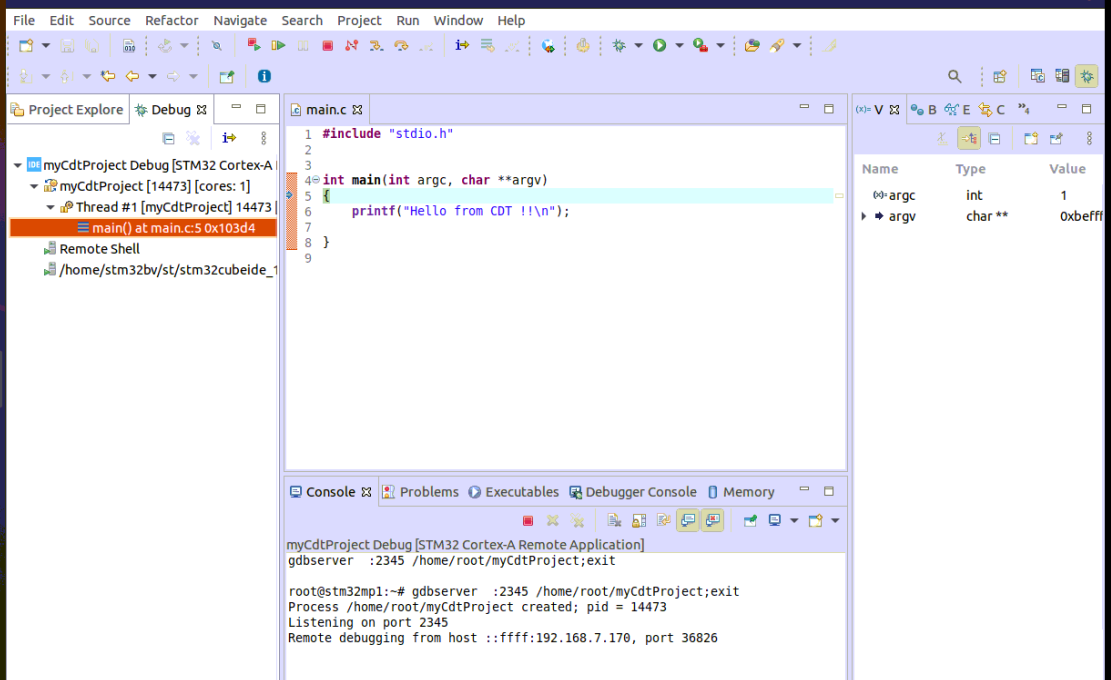This article proposes to manage a Linux® user space application for STM32 MPU, using the standard Eclipse® CDT™ wizard.
![]()
1. Create a "user space" project[edit source]
- Open the new C project wizard: File -> New -> Project... C Project.
- In the first window, choose OpenSTLinux SDK
- Then Next to set up configuration
- and Next to choose the SDK version
- To populate this project with file "main.c", first select project, then right-click New -> File -> main.c, and then fill it with some C code.
2. Build[edit source]
- Select your project, right-click and then Build Project.
3. Preparing Debug Configuration[edit source]
In order to debug user space application, your target must be Linux® booted and network connected.
You can check boot messages via Linux® console opened with butterfly icon, but remember this console cannot be shared outside STM32CubeIDE (minicom,...).
In order to check network connection, start the Target Status widget in the bottom right corner of the window.
Please also check How to set up proxy and P2P Ethernet connection with STM32CubeIDE if you are in that case.
4. Debug Configuration[edit source]
- Select your project, right-click Debug as... > Debug Configurations.
- Then create an STM32 Cortex-A Remote Application debug configuration, and double-click on it.
5. Debug on STM32 MPU device[edit source]
Click on Debug:
- Executable is downloaded to the target,
- GDBServer is launched on the target,
- GDBClient is launched on the workstation and can exchange via network with GDBServer.
